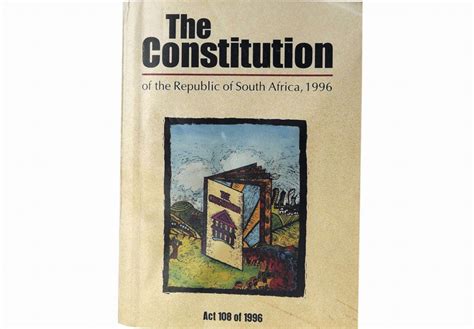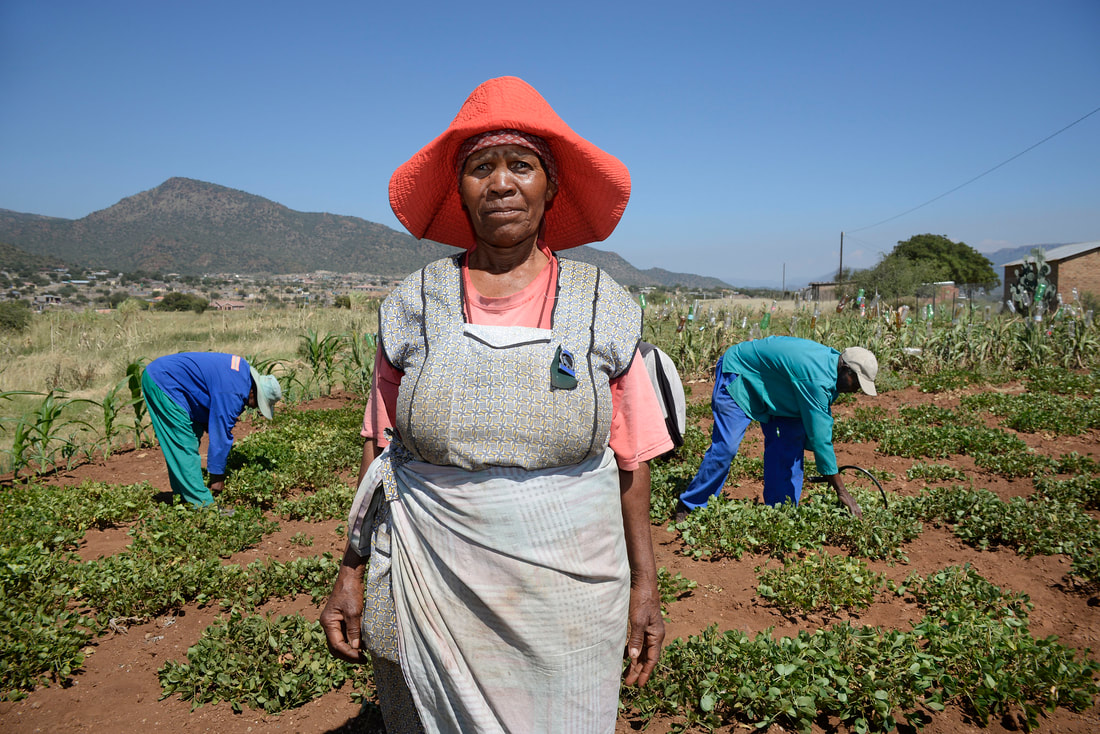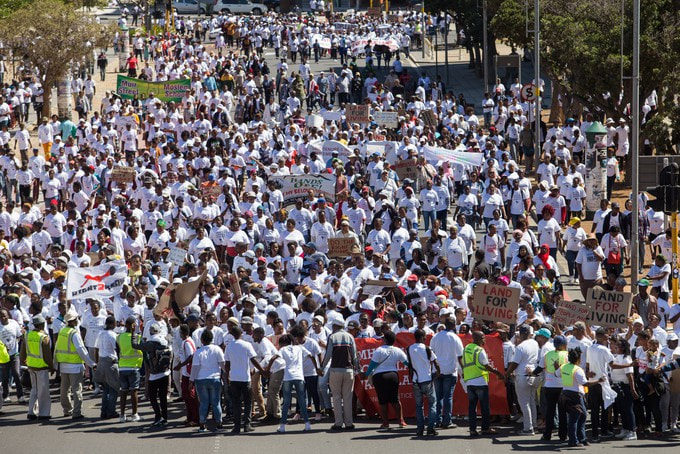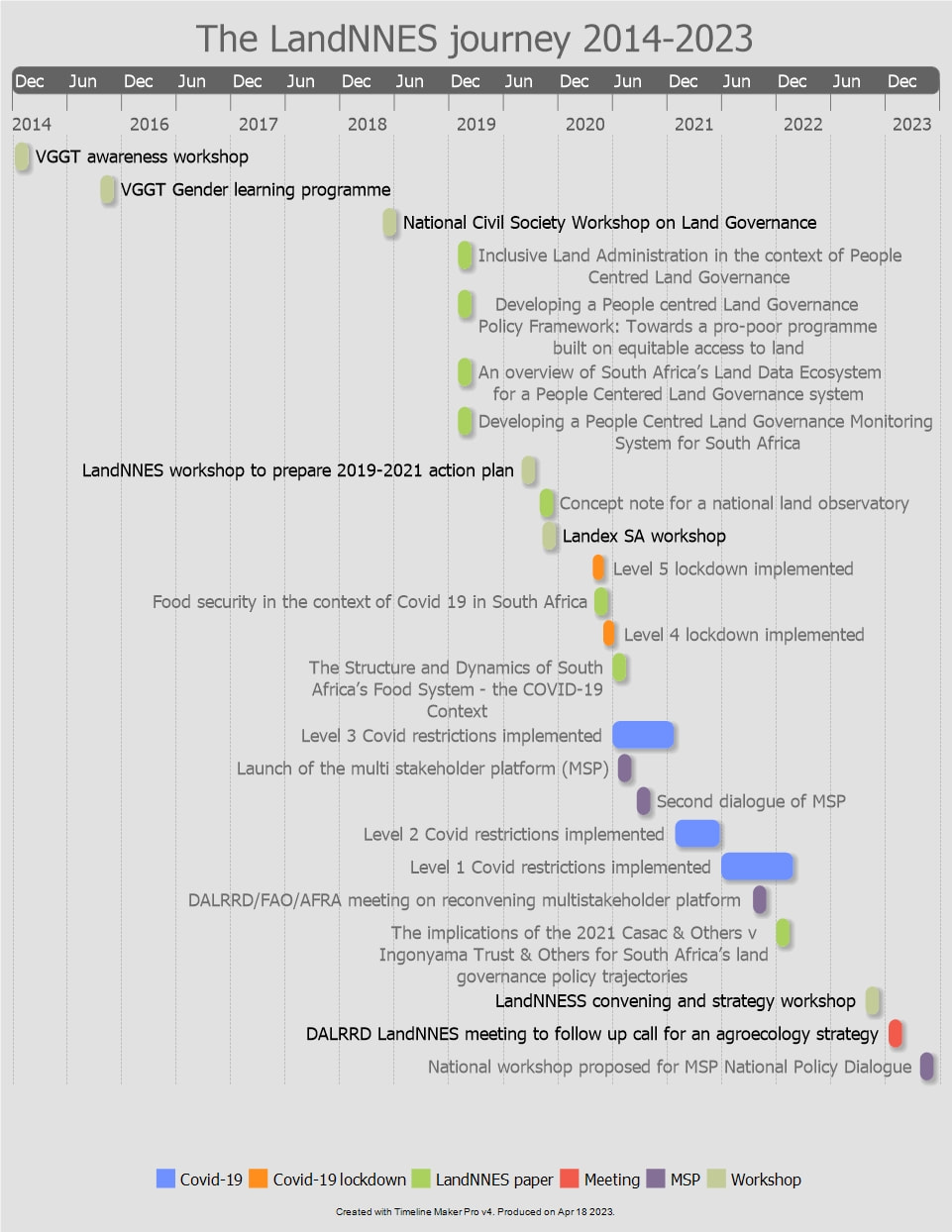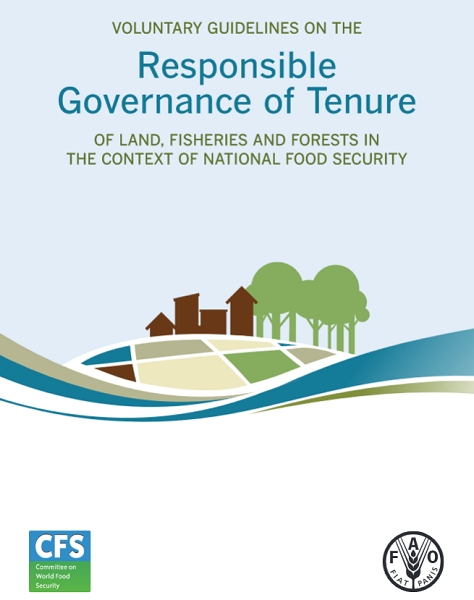Setting the sceneSouth Africa’s Constitution strongly commits national institutions to respect, protect and strengthen the land rights of women and men, gender equity, equitable access to and distribution of land, and the rights of human rights defenders. Section 25 of the Constitution known as the ‘Property Clause’ extends and protects property rights, and allows for expropriation of property. Sections 25(5), (6), (7) and (9) guarantee (a) equitable access to land through redistribution; and (b) restitution to those whose rights were historically dispossessed as a result of racial discrimination.
Land reform - a broken promiseThe transformational provisions contained in Section 25 could be used to actively promote land redistribution and restitution. These provisions include the power of the state to expropriate land for a public purpose or in the public interest, subject to compensation that is just and equitable. However, there has been limited progress in using these provisions to achieve radical land redistribution.
Furthermore, there is growing evidence that land redistribution and restitution have been captured by elites, while millions of people in the former bantustans, living and working on farms and informal settlements lack secure land rights. To address these issues, there needs to be a renewed commitment to land reform that prioritizes the needs of marginalized communities and rural people whose rights as citizens have been compromised. This requires increased commitment to promote social justice, improve transparency and accountability in the land reform process, while engaging in meaningful dialogue with affected communities to ensure that their needs and concerns are heard and addressed. |
Making the changeMany of our member organisations have long histories in the land sector. Some were active in supporting popular land struggles long before the transition to democracy in 1994. All have been working tirelessly to advance equitable access to land and security of tenure throughout the democratic era. The LandNNES chapter forms a relatively recent part of our collective experience.
VGGT workshops The LandNNES journey began in 2014 as a collaborative effort between state and non-state actors in the land sector in South Africa. This effort involved a range of stakeholders, including the Department of Rural Development and Land Reform, the Department of Agriculture, Forestry and Fisheries, civil society organizations, organized agriculture, and academia. The workshops sought to agreement on country-specific priorities in alignment with the Voluntary Guidelines on the Responsible Governance of Tenure of Land, Fisheries and Forests in the context of National Food Security (VGGTs). The VGGTs are an internationally recognized set of guidelines developed by the Food and Agricultural Organization of the United Nations (FAO) to promote secure tenure rights and responsible governance of land, fisheries and forests. The LandNNES workshops were organized with the support of the FAO and the UK’s Department for International Development (DFID). Establishing a multi-stakeholder platform An important outcome of these processes was the establishment of the Multi-Stakeholder Platform (MSP) in 2017 to develop coherent strategies around land governance. The Land Network National Engagement Strategy of South Africa (LandNNES) represented a network of civil society organisations, combined in a consultative forum to strengthen civil society’s participation. Effective multi-stakeholder engagement is critical for promoting inclusive and sustainable land governance, and the MSP and LandNNES sought to contribute to more effective and participatory decision-making around land governance in South Africa. The MSP and COVID-19 As the MSP was about to launch its first Policy Dialogue in March 2020, the lockdowns associated with the accelerating COVID-19 pandemic redrew the landscape, requiring us to reimagine spaces for policy dialogue and move this online. However this transition had some advantages but many limitations. The voices of many rural community organisations which lacked internet access and data were muted. The Launch of the Multi-Stakeholder Platform Policy Roundtables The National Multi-Stakeholder Platform (MSP) on Land Governance and Agrarian Reform launched an online roundtable event on the 19th June 2020, with the first opening address by the Hon. Minister Thoko Didiza of the Department of Agriculture, Land Reform and Rural Development (DALRRD). A follow-up policy roundtable session was held on the 22nd of August 2020 also via Zoom. This focused on the social impacts of COVID-19 and its implications for South Africa’s food system A full consolidated report of the two online policy dialogues can be found on our resources page , and video extracts from the event can be viewed online. While this process has proved difficult to sustain there are current initiatives to relaunch the MSP. |
Challenges to institutionalise an effective MSP
While Covid restrictions have now been lifted there remain many challenges to institutionalise a Multi-Stakeholder Platform that is inclusive, impactful and resilient to change.
These include how to:
These include how to:
- Institutionalise and rebuild confidence in the MSP as a policy discussion and development platform to ensure inclusive and participatory approaches to land governance appropriate to different settings: In the former bantustans and Act 9 areas, on farms, on land transferred through the land reform programme and in urban areas .
- Take forward sustainable area based approaches to planning for land and agrarian reform at local municipal scale.
A long and winding road
The timeline below maps our journey to date.
LandNNES and the VGGT
LandNNES originated from processes linked to the launch and promotion of the FAO Voluntary Guidelines on the Governance of Tenure (VGGT) in South Africa. The VGGT were originally developed through a participatory process led by the Food and Agriculture Organization of the United Nations (FAO) in collaboration with other international organizations, civil society, and government representatives.
The VGGT were officially adopted in 2012 and aim to promote secure tenure rights and equitable access to land, fisheries, and forests, particularly for vulnerable and marginalized people. They provide guidance to governments, civil society organizations, and other stakeholders on how to design and implement tenure policies and practices that promote responsible and sustainable governance of natural resources.
The key components of the VGGT include:
The VGGT were officially adopted in 2012 and aim to promote secure tenure rights and equitable access to land, fisheries, and forests, particularly for vulnerable and marginalized people. They provide guidance to governments, civil society organizations, and other stakeholders on how to design and implement tenure policies and practices that promote responsible and sustainable governance of natural resources.
The key components of the VGGT include:
- Legal recognition of tenure rights: The VGGT promote the recognition of tenure rights through clear legal frameworks that respect human rights and promote equitable access to natural resources.
- Equitable access to natural resources: The VGGT emphasize the importance of ensuring that vulnerable and marginalized groups have equal access to natural resources and are not excluded from decision-making processes related to tenure rights.
- Participatory processes: The VGGT encourage the use of participatory processes that involve local communities and stakeholders in decision-making related to natural resources.
- Sustainable management of natural resources: The VGGT promote the sustainable management of natural resources to ensure that they are used in a responsible and environmentally sustainable manner.
- Conflict resolution: The VGGT provide guidance on how to resolve conflicts related to tenure rights and natural resource management in a peaceful and equitable manner.

